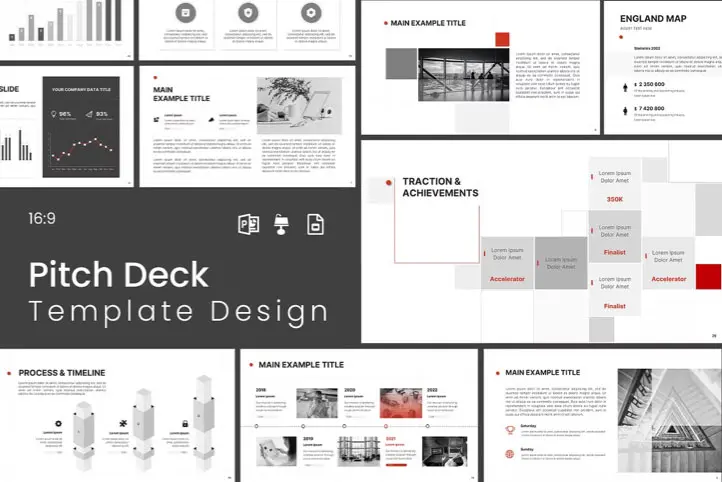How To Grow Your Business Globally, Lessons From Matillion
Embarking on the journey of international business expansion can be both thrilling and daunting. Matthew Scullion, the founder and CEO of Matillion, a renowned UK tech unicorn, offers invaluable insights into scaling a business globally. His experience reveals the intricacies of strategic expansion, from understanding market dynamics to nurturing a cohesive global team.
In this episode of the Entrepreneur Experience Series, Matthew shares his journey and expert advice on scaling any business globally, covering key topics such as:
Key Takeaways:
Motivations for Founding a Business – The mindset behind building a successful company
Product-Market Fit – How to ensure your offering is ready for scale
When to Go Global – Is international expansion the right strategy for your business?
Strategies for International Expansion – Approaching new markets with confidence
Challenges of Global Growth – Common pitfalls and how to overcome them
Hiring and Managing Global Teams – Building a high-performing international workforce
Tips & Tools for International Expansion – Practical advice from experience
Driving Growth – The key ingredients for long-term success
For business owners considering expansion, this session is packed with invaluable insights from a founder who’s successfully scaled a high-growth company on the global stage.
Motivations for Founding a Business
The desire to build a company had been in my mind for years. At 17, I co-founded a small software company, which was later acquired, leading me to take on a corporate job. However, the longing to create something meaningful never faded. I often discussed my ambitions with colleagues, friends, and my wife. One day, after a particularly tough week at work, my wife challenged me: “You’ve been talking about starting a business for years—why don’t you just do it?” That moment solidified my decision to take the leap.
When aspiring entrepreneurs ask me the secret to building a business, my answer is simple: “Start and then don’t stop.” The hardest part is leaving the security of a steady job, but overcoming that fear is crucial to making progress.
Understanding Product Market Fit
One of the most critical aspects of building a successful business is understanding your market. Entrepreneurs must consider the total addressable market and how effectively they can reach it. Growth depends on two factors: the number of people who need your product and how well you execute your strategy.
A core principle at Matillion is product-market fit. It’s not a binary concept but an evolving one. A strong product-market fit means solving a real problem that customers are willing to pay for. If you have this fit in a large enough market, you can scale quickly. Without it, every aspect of the business becomes harder—sales, marketing, and customer retention all suffer when the product doesn’t provide significant value.
Even with a great product-market fit, the market size matters. If your solution only appeals to a handful of customers, your growth potential is limited. This is why many software businesses, including Matillion, focus on large, scalable markets.
Deciding When to Go Global
Expanding into new geographies is a major decision and not always the right strategy for growth. A useful framework for this is the concept of the “marginal dollar”. In other words, where will your next investment be most effective in driving growth? If your home market remains untapped, it may be more cost-effective to focus there first. However, at some point, international expansion may become the best avenue for growth.
For software companies like Matillion, entering the U.S. market is almost inevitable due to its vast customer base. The decision to expand should be driven by clear economic logic: where can you generate the highest return on investment?
Strategy For International Expansion
When expanding globally, two questions need addressing: “Why and when should we expand?” and “How do we do it effectively?”
The first question is about driving growth. Once a company has saturated its initial market, expansion becomes a more cost-effective way to scale. Strategic reasons—such as positioning for future opportunities—may also play a role. However, businesses must assess whether the timing is right.
The “how” depends on the nature of the business. In software, international expansion is relatively low-cost since digital products can be distributed instantly. However, even in tech, proximity to customers remains crucial. As Matillion grew, we noticed that a significant portion of our revenue came from the U.S., prompting us to establish a local presence.
A company’s most important asset is its team. While products, financials, and customers matter, it’s the people who drive success. Maintaining company culture across geographies is essential. When we opened our first U.S. office in New York, I spent extensive time there to ensure that our culture and values carried over from the UK.
Embedding culture in a new market requires personal investment. I wasn’t attending glamorous meetings on Wall Street—I was working closely with our first hires, instilling the principles that made Matillion successful in the UK. That foundation has endured, helping us build a cohesive team across multiple regions.
Challenges of Global Expansion
Expanding a business internationally is an exciting milestone, but it comes with significant challenges. One of the biggest hurdles is where to focus your energy.
As an entrepreneur, you’ve likely spent years thinking about and building your business in the UK, dedicating countless hours to making it a success. When the time comes for international expansion, however, many founders don’t apply the same level of intensity as they did in their home market. Instead, they hire a couple of new team members overseas and hope for the best—leaving some of the world’s most competitive markets in the hands of people they barely know.
This approach can be risky. International expansion requires just as much, if not more, strategic focus and commitment as launching in your domestic market. When we expanded into the US, we took the opposite approach—treating it as a completely new venture and putting every ounce of effort into making it work.
Should You Expand Internationally—And When?
Expanding a business doesn’t always mean going global. There are three main ways to grow:
- Expanding your market within your current geography – Reaching more customers within the UK by refining your offering, broadening your target audience, or increasing brand awareness.
- Expanding your product or service range – Creating additional offerings that increase the value of each customer, through upselling or cross-selling.
- Expanding into new geographies – Entering new markets, whether in Europe, the US, or beyond.
Hiring and Managing International Teams
When hiring early team members or senior leaders in a new geography, thoroughness is key. These individuals will not only be the pioneers of your business in a new market but also play a crucial role in shaping the company culture far from its original base.
To ensure the right fit, an extensive hiring process is essential. In my own experience, I typically interview candidates 12 to 14 times, with about half of these conversations being with me directly and the other half involving colleagues or external advisors. While this may seem excessive, it helps gather well-rounded insights and ensures the candidate is a strong cultural and operational fit. The challenge is to make this process efficient and engaging for candidates while maintaining a high bar for selection.
Once you’ve onboarded new hires, your job isn’t done. Successful international expansion requires significant investment in your people. This means frequent communication, hands-on support, and often spending time on the ground with them. While you might have hired someone to manage operations in a new location, that doesn’t mean you can be entirely hands-off. Your presence is crucial in guiding them and ensuring alignment with the company’s vision and goals.
Your company’s culture is a fundamental part of its success, and maintaining that culture across geographies is one of the biggest challenges in international expansion. While you can document your values, establish structured onboarding processes, and create company-wide rituals to keep everyone connected, nothing replaces in-person leadership—especially in the early days.
When I expanded my business to the United States, I spent a significant amount of time there, not just overseeing operations but actively embedding our company culture. Even today, despite living in the UK, I spend at least one week in three in the U.S. to ensure our team stays connected to our core values.
Tools and Tips for Successful Expansion
Expanding into new markets is a complex but rewarding challenge. Here are some key takeaways from Matillion’s international expansion journey:
1. Learn from Others
Learning at an accelerated pace is essential. One of the best ways to do this is by seeking advice from those who have already expanded internationally. Actively reach out to experienced entrepreneurs and industry experts to gain insights on what works—and what doesn’t.
2. Finding Talent in New Markets
Hiring the right people in a new geography is critical. If possible, leverage personal and professional networks to find trusted candidates. When that’s not an option, consider working with recruitment firms, particularly retained search agencies that specialise in sourcing top-tier talent for key roles.
3. Utilise Government Resources
Governments often provide support for businesses looking to expand internationally. In the UK, for example, there are services that assist with regulatory processes, networking, and even brand-building in new markets. These resources can be valuable in navigating the complexities of global growth.
Resources include:
great.gov.uk – a dedicated government website for support and advice on how to trade globally.
Find a buyer – create a business profile to help find international buyers.
4. Leverage Existing Market Channels
Rather than building an entirely new sales channel from scratch, consider leveraging existing platforms or partners. For example, tech companies can sell through established digital marketplaces, just as mobile apps gain traction via app stores. Similarly, working with resellers or distributors in a new region can help businesses enter markets faster and more efficiently.
5. Re-evaluate the ‘Marginal Dollar’ Equation
Expansion should be driven by cost-effectiveness. Assess where every additional dollar spent will generate the most return—whether that’s deeper penetration into an existing market or moving into a new geography. If expansion doesn’t provide the best return, it may not be the right time.
Ultimately, international growth isn’t just about reaching new customers—it’s about executing the right strategy at the right time with the right people.
At YFM Equity Partners, we’re committed to supporting ambitious entrepreneurs as they scale and grow. For more entrepreneur news, take a look at our other articles and videos, and subscribe to our newsletter. Watch The Entrepreneur Experience Video Series for more insights and advice from leading UK entrepreneurs and thought leaders in the business ecosystem.











